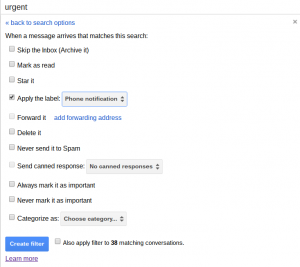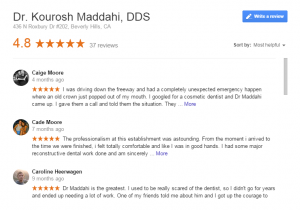United Airlines: A Reminder Of Why Marketers Must Manage Reputations On Google
by Marcus Tober , Op-Ed Contributor, May 15, 2017
Anyone running a Google search on “United Airlines” recently will have seen the results littered with references to the story about a passenger being forcibly dragged off a plane from an overbooked United flight. For marketers, those negative references serve as a reminder of why it’s important to have an active plan to manage a company’s online reputation in search.
To be fair, United has done a reasonable job of managing the crisis and trying to clean up its brand search results in the weeks since the story broke. But for companies that don’t have a plan, negative results can linger for months and years and seriously impact your business.
Let’s face it — if you are considering a purchase from any company, especially one you don’t know well, you will start by Googling its brand name or products. The same goes if you are applying for a job or entering into a business partnership. If the results you see are negative, outdated or unprofessional, you’ll think twice.
With this in mind, here are four important truths about the job of managing a company’s online reputation in search, from a recent Searchmetrics paper developed jointly with Jason Barnard, an expert in this area.
1) It’s not just about removing negatives
You might assume that Online Reputation Management in search is mainly about removing negative results about your brand or pushing them lower. Although this certainly is important, there is a lot more you should be doing.
A key priority is working to ensure that search results mentioning your business are accurate, up-to-date and consistent — and in line with your brand messaging. The content should be saying similar things across all devices (as Google’s mobile and desktop results are different). And if you’re a global company, you need to manage consistency across regions and countries.
Plus, you should be continually seeking ways to improve what appears, making content more engaging and portraying a more desirable brand image.
2) It’s becoming more complicated
There are a growing number of ways that Google can choose to display information about your company within the SERPs. From video integrations to Twitter cards, news results and Knowledge Graphs, it’s no longer just the familiar 10 blue organic links that formerly characterized Google’s results.
Much of the information within this growing list of search “real estate” comes from a company’s own Web site and Web properties, so brands do have some sway over what appears. For example, the majority of videos that are integrated into search results come from YouTube, so that’s where you should put your corporate videos and upload transcripts to help Google understand the content. Similarly, Knowledge Graph boxes, which Google displays in the top right-hand side of search pages for many brands, are usually influenced by a company’s Wikipedia and social profiles.
3) Don’t wait for a crisis to strike
University of California Davis was reportedly forced to spend $175,000 between 2013 and 2016 to clean up negative references about it that appeared online after an incident when student protesters were sprayed with pepper spray by campus police.
The organization had to start its online reputation management effort from scratch, probably making the task more difficult, slower and significantly more expensive. If it had already put an active strategy in place, the problem could have been tackled much faster.
4) Try to influence what you can’t control
Many of the search results that mention your company will come from Web sites other than your own. Think partners, customers and competitors, as well as industry publications, forums and reviews.
While you can’t directly control what they publish, you do have some influence. If something is incorrect or out of date you can ask the owners or authors for a correction. If there is a negative forum or social post, you can respond to it. And when it comes to news, you should be building relationships and sharing information with the editors on the key publications that cover you brand.
With search engines often the starting point when people want to find out about a company, this is not an area you can afford to ignore.
MediaPost.com: Search Marketing Daily
(15)







